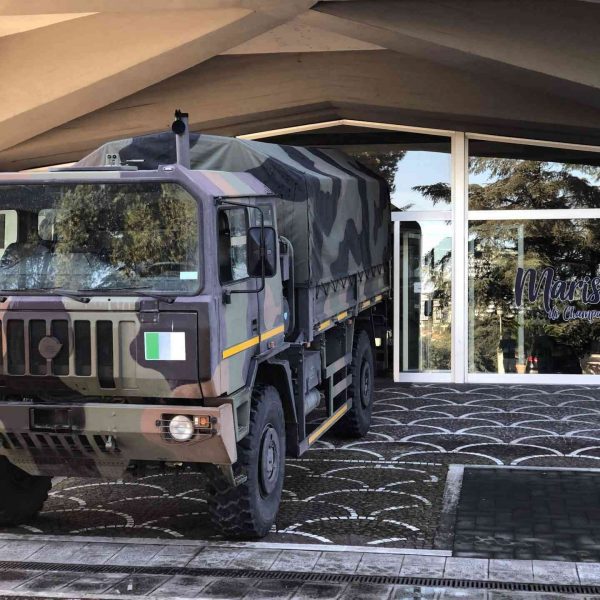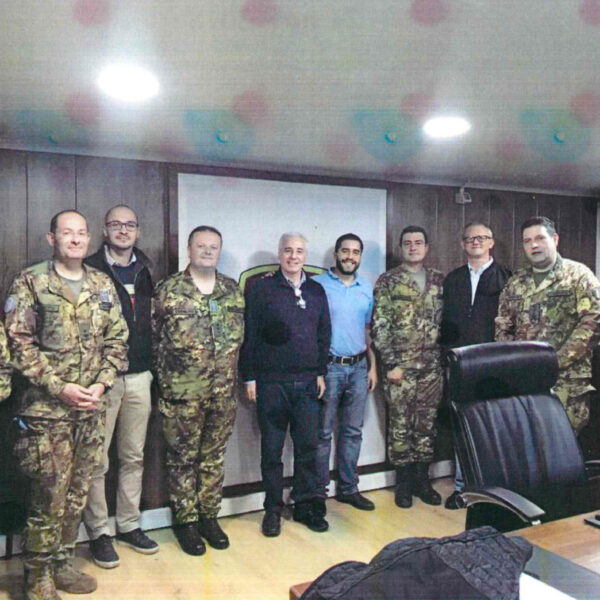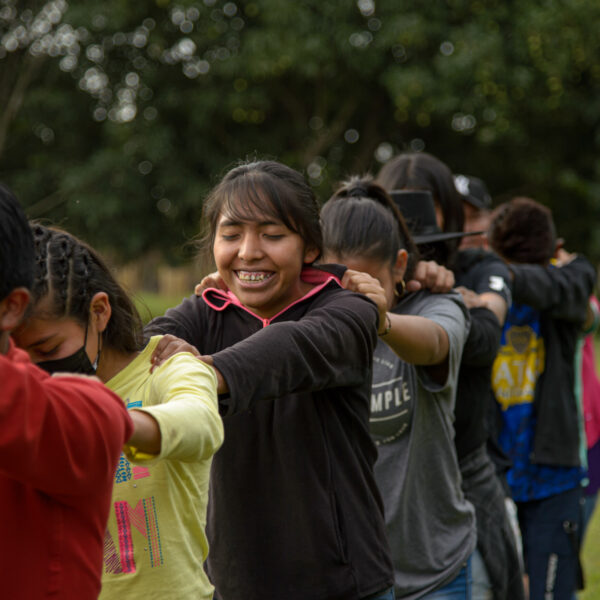FMSI Interview to Mrs. Charlotte, Advocacy officer for the Three2Six Program
- Hello Charlotte, tell us about yourself. Where were you born? What do you do in
your free time?
Hello, my name is Charlotte Margerit Byrne. I am originally from France but I have been in South Africa for the last 5 years. I am 32 years old and I live in Johannesburg with my husband. When I have free time, I love to cook, spend time with my family and friends, and go for long walks with our energetic puppy.
- How have you been involved in the advocacy work in Three2Six? What are your values/feelings that led you to be an integral part of the Program?
I have been involved in the Three2Six project for over 4 years now. I first joined Three2Six as project manager in which role I got to lead the advocacy efforts of the project. Later on, I moved to a new role focusing specifically on advocacy, and on communications and partnerships. As part of this, I have been advocating with the relevant state departments and stakeholders for the rights of refugee, migrant and undocumented children to be upheld (e.g. through policy submissions, advocacy campaigns, lobbying of decision-makers). This involves coalition work with other organisations and institutions working in the migration field too. I have always very much believed in helping others, especially people who are in dire need.
This has led me to pursue law studies and to later specialise in humanitarian law and refugee rights. My first two experiences in the work environment, as an intern at the United Nations High Commissioner for Refugees (UNHCR) and at a local organisation in South Africa, confirmed my strong interest for refugees rights. After working in France at the Court of asylum, I moved to South Africa where I came across Three2Six. I was immediately in awe of the work accomplished by the organisation and enquired about getting involved in It was obvious to me that the work done by Three2Six was absolutely critical as, without it, refugee, asylum seeker, migrant and undocumented children were completely excluded from the educational system and were sitting at home missing out on their childhood. These vulnerable children are offered a safe space at Three2Six where they can be children again, learn like any other child and build a future for themselves. This is why I wanted to be a part of Three2Six, to help make a difference in the lives of these children.
- Tell us about one or more significant experiences in Three2Six. Tell us about the child beneficiaries, their lives and experiences, some significant anecdotes.
The children that Three2Six supports come from poor backgrounds. They are from other African countries (e.g. the Democratic Republic of Congo, Rwanda, Zimbabwe, Burundi) where their parents or themselves were born. They have come to South Africa to seek refuge but unfortunately face major challenges in the country such as access to basic services (e.g. documentation, education, medical), poverty and xenophobia, which limit their integration in the country. Some of the children who join Three2Six have never gone to school or have missed a few years of schooling. Some cannot speak a word of English. However, with the support they receive at the project, they can speak English within a few months and catch up on the other learners. What is significant to me is that some of the learners who joined Three2Six at its inception in 2008 have gone through their secondary education, have graduated from university and are now employed. Two of them are currently studying to become teachers while interning at our host schools as intern teachers. Their determination and eagerness to learn have opened doors for them in life, despite the discrimination they have faced. Several other past learners have received scholarships to complete their secondary education at our host schools. They have adapted and integrated extremely well and are excelling, despite moving from three hours of teaching a day at Three2Six to a full day at school. We are very proud of them.
- Have you encountered any difficulties or challenges in your advocacy tasks?
Doing advocacy work for refugees and migrants in South Africa can be challenging at times as the problems they face are also the harsh reality for many South Africans themselves. Resources and services are stretched and limited for all. The rampant xenophobia that affects the country is an additional barrier as it prevents advocacy work from having an effective and impactful effect on the lives of refugees and migrants in South Africa. The lack of political will to address the issues that they face is another impediment but we have recently had very good and promising engagements at a ministerial level to address these issues at a systemic level.
- Over the past two years, due to the Covid – 19 emergency, the situation has been difficult, but thanks to the help of donors and volunteers, the Three2Six program has achieved great results: many children have been assisted and their living situation has improved. Would you like to tell us about some of the difficulties you have experienced and overcome?
The pandemic caused an immediate crisis for our families. Under hard lockdown, many of our families found themselves out of work and unable to feed themselves as their source of income had disappeared. They suffered the impact of this crisis for months to come. As a response to this, the project provided regular food aid (through food parcels and food vouchers) to its families thanks to the generosity of its donors and friends. These initiatives brought our project closer to different religious and community organisations who supported Three2Six with food donations. Another immediate challenge faced by the project at the start of the COVID crisis, and something that was seen worldwide, was the impact of the digital divide on poor communities. The project worked on alternative ways of reaching its learners during hard lockdown as they did not have laptops or access to the internet at home. Weekly classes were held on a Catholic radio station before moving to lessons and homework on Whatsapp, to accommodate all families. Both our children and teachers adapted very quickly to this new way of communication, and of teaching and learning. The successive lockdowns which limited our teaching time spent on campus meant that we had to maximize the time that we had with our children when schools reopened. This is when we organised holiday programmes and weeks of intensive learning during the school holidays to catch up on the lost teaching time. Educational camps were also run for the children to rebuild links and relationships after the isolation felt during the various lockdowns. Through partners, we were also able to provide psychosocial support to our beneficiaries to help them deal with the stress and other mental health issues caused by the crisis.
- What are you most proud of about the Three2Six program?
I am proud of the impact Three2Six has on the lives of its beneficiaries. Over its 15 years of existence, the project has provided a safe and loving learning space to over 2600 children who would have otherwise not had an education at all. But most importantly, I am proud of the children who have gone through Three2Six and of their parents who have shown so much resilience despite the challenges that they have had to face over the years as non-citizens. Our children have achieved incredible things. They have grabbed the opportunity to learn that Three2Six provided them without ever losing hope and have held on to this no matter what. As stated above, some of our oldest learners have now completed their tertiary education and have started working. Amazingly, we also have past learners who come back to the project to volunteer their time and support the current Three2Six learners. They refer to Three2Six as a home and as a family. This is the biggest achievement in my opinion.




